Transform Your Bedroom into a Calming Oasis
Your bedroom should be a sanctuary, a place of peace and comfort. After watching a horror film, creating a soothing environment can make a huge difference:
- Soft Lighting: Avoid harsh, bright lights that can make you feel alert. Instead, opt for a dim, warm bedside lamp or even a nightlight to keep things cosy and inviting.
- Comfortable Bedding: Soft, quality bedding can make you feel safe and snug, providing a sense of security. Invest in pillows and duvets that make your bed feel as inviting as possible.
- Clutter-Free Space: A tidy, uncluttered room helps promote mental calmness, making it easier to relax and let go of any lingering tension.
Wind Down with a Relaxing Pre-Sleep Routine
Establishing a bedtime routine helps your brain and body transition from the movie’s adrenaline to a peaceful state. Try incorporating these soothing activities:
- Read a Light Book: Choose something light-hearted or comforting – anything too suspenseful may keep your mind on edge. Reading relaxes the mind and helps it transition away from the storylines of the movie.
- Journaling: Writing about your day or noting down thoughts can be cathartic. This practice can help release any tension or lingering thoughts before you sleep.
- Relaxing Stretching: Gentle stretches can relieve any physical tension brought on by jump scares, preparing your body for rest.
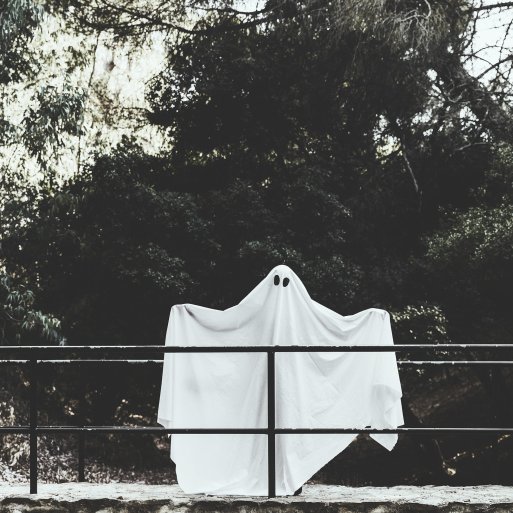
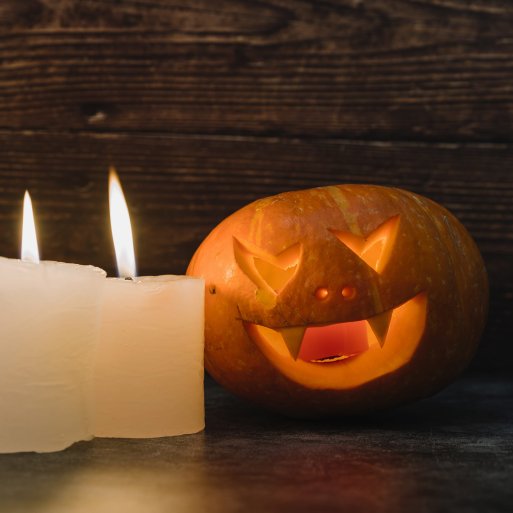

Practise Positive Visualisation to Calm Your Mind
Scary scenes often leave strong images in our minds, which can resurface when we close our eyes. Replace these with calming, positive thoughts to relax:
- Imagine Your ‘Happy Place’: Visualise a comforting, peaceful environment – maybe it’s a beach, a forest, or a serene garden. Picture every detail, including the sounds, smells, and colours, and allow yourself to immerse in this positive scene.
- Recalling Joyful Memories: Think about a happy memory that brings you comfort. This can redirect your mind, creating a soothing mental experience that can guide you towards sleep.
Use Deep-Breathing Techniques to Ease Anxiety
Anxiety can make breathing shallow and quick, keeping the body on alert. Deep-breathing techniques, like the 4-7-8 method, can slow your heart rate and release tension:
- The 4-7-8 Technique: Breathe in through your nose for 4 seconds, hold your breath for 7 seconds, and slowly exhale for 8 seconds. Repeat a few times to activate your body’s relaxation response.
- Focus on the Breath: Concentrating on the rhythm of your breathing can also help calm your mind, taking attention away from lingering fears.
Sip on a Warm, Caffeine-Free Drink
A warm drink can be a soothing addition to your bedtime routine, but steer clear of caffeine, which can increase alertness and disrupt sleep:
- Herbal Teas: Chamomile, lavender, or peppermint tea are known for their natural relaxing properties. These can help calm the body and mind, preparing you for a good night’s sleep.
- Warm Milk: A traditional remedy, warm milk contains tryptophan, which may promote the production of melatonin, the hormone that regulates sleep.
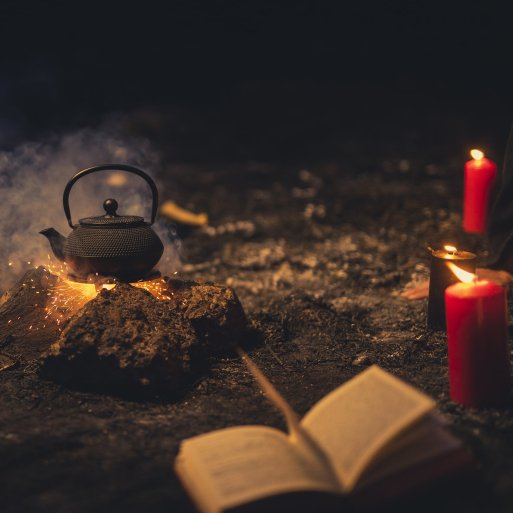


Avoid Back-to-Back Horror Movies
While a midnight horror movie marathon might sound tempting, it’s best to avoid watching multiple scary films in one go, especially late at night. Watching just one film allows your mind to process the suspense and helps you unwind more easily afterward.
Play White Noise or Calming Sounds
After watching a scary movie, complete silence can make us feel more aware of every sound and shadow. A gentle background sound can make the room feel less daunting:
- White Noise Machine: White noise creates a steady sound that masks sudden noises that might be startling in the quiet of night. There are apps and machines available to provide a soothing, consistent hum.
- Nature Sounds: Sounds like rain, waves, or birds chirping can be very comforting, helping create an ambient atmosphere that lulls you to sleep.
Distract Your Mind with a Mental Exercise
The brain can sometimes replay scary scenes as a coping mechanism, so giving it something else to focus on is key. Try these gentle mental distractions:
- Counting Backwards: Start at 100 and count backwards in odd numbers. This requires just enough concentration to keep you occupied but doesn’t overly stimulate the mind.
- Name Categories: Pick a topic, like animals or cities, and list as many as you can in your head. This method is effective because it keeps your mind engaged without stirring up fear.
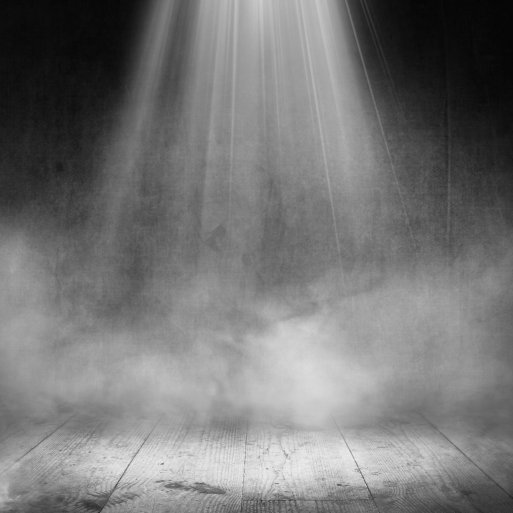
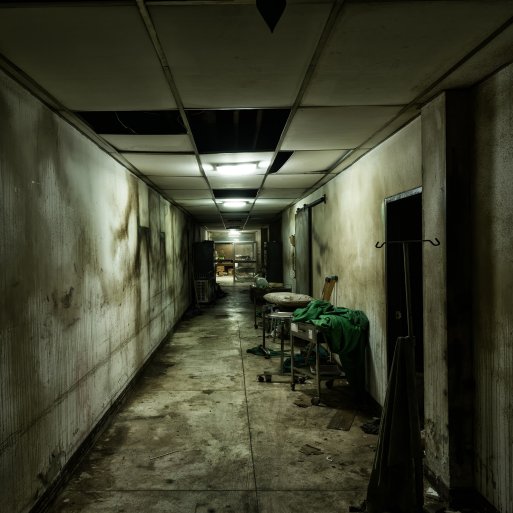
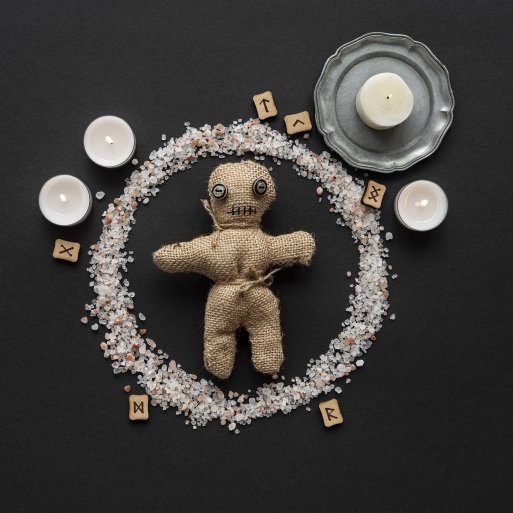
Sleep in a Different Room Temporarily
If your bedroom feels unsettling after the film, consider temporarily shifting to a different space, like the sofa or a guest room. A brief change of scenery can help reset your mind. When you feel calm, return to your bedroom feeling more settled.Turn Down the Room Temperature
Keeping your room cool can make it easier to fall asleep, helping to soothe the body’s natural systems. The body associates cool temperatures with sleep, making it easier to relax and unwind in a chilled environment. Adjust the thermostat or use a fan to keep the room at a comfortable, sleep-friendly temperature.FAQs
Can scary movies lead to long-term sleep problems?
Watching a scary movie occasionally might cause temporary sleep disturbances, but it shouldn’t lead to long-term issues. However, if sleep disruptions become frequent, you may want to limit horror films to avoid a cycle of poor sleep quality.
Are there any ways to watch horror films without losing sleep?
Watching horror films earlier in the day, engaging in relaxing activities after the film, and creating a calm bedtime routine can help reduce any impact. It also helps to remember that these films are fiction, designed to entertain and thrill rather than represent real life.
Will exercise after a scary movie help me sleep better?
Light physical activity can help release the adrenaline and tension caused by jump scares or intense scenes. A gentle walk or a few minutes of stretching before bed can help you unwind and prepare for restful sleep.
Why is it so difficult to sleep after watching a scary movie?
Horror films activate the body’s ‘fight or flight’ response, increasing adrenaline and making you alert. This heightened state can make it challenging to ‘switch off’ and relax, so it’s crucial to calm the mind and body through the techniques mentioned above.
Should I avoid scary movies altogether if I have difficulty sleeping?
If horror films frequently disrupt your sleep, it might be wise to limit them or watch only during the daytime, giving you more time to wind down and reduce their impact on your sleep.